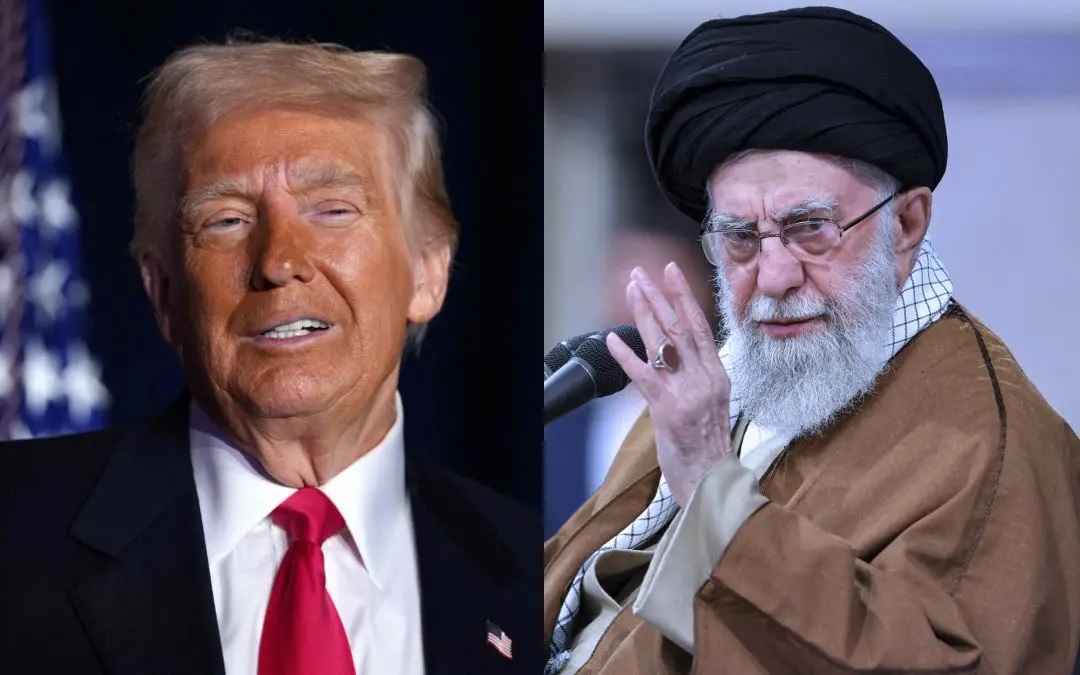News
Iran condemns Trump’s travel ban as ‘racist’ and anti-muslim

Iran has strongly criticized the United States for reinstating a travel ban affecting Iranian nationals and citizens from 11 other predominantly Middle Eastern and African countries.
Online media sources say Iranian officials condemned the move, describing it as evidence of a “racist mentality” among U.S. policymakers.
The ban follows an executive order signed by President Donald Trump, reintroducing broad travel restrictions that are reminiscent of the controversial bans implemented during his first term.
The order, which will take effect on June 9, has been framed by U.S. officials as a national security measure.
It was signed just days after a violent incident at a pro-Israel rally in Colorado, where a firebomb attack left more than a dozen people injured.
The suspect in that case is reportedly an Egyptian man who had overstayed his U.S. tourist visa.
Reacting to the decision, Alireza Hashemi-Raja, condemned the move in a public statement released on Saturday.
Alireza is the Director General for the Affairs of Iranians Abroad at Iran’s Foreign Ministry,
He referred to the travel ban as a “clear sign of the dominance of a supremacist and racist mentality among American policymakers.”
Hashemi-Raja further accused the U.S. government of harboring deep-seated animosity toward both the Iranian people and Muslims more broadly.
In addition to Iran, the renewed travel ban targets nationals from Afghanistan, Myanmar, Chad, the Republic of the Congo (Congo-Brazzaville), Equatorial Guinea, Eritrea, Haiti, Libya, Somalia, Sudan, and Yemen.
The ban is not uniformly comprehensive, as it includes partial restrictions on travelers from seven additional countries.
However, the specifics of the partial bans have not been publicly detailed.
Hashemi-Raja argued that the U.S. policy contradicts the core tenets of international law.
These tenets are particularly principles that protect the right to travel and freedom from discrimination based on nationality or religion.
According to his statement, the measure affects “hundreds of millions of people” who are now being denied entry to the United States simply because of their national origin or religious background.
He went on to call the ban discriminatory and warned that it could place legal and ethical obligations on the United States under international frameworks.
Though he did not expand on what those obligations might entail, his remarks suggested that Iran may consider legal or diplomatic responses through international channels.
Tensions between the United States and Iran are long-standing, dating back to the 1979 Islamic Revolution, which led to the severance of diplomatic ties.
Since then, bilateral relations have been characterized by recurring conflict, mistrust, and sporadic efforts at negotiation, most notably over Iran’s nuclear program.
Despite the strained political relationship, the U.S. remains home to the largest Iranian diaspora community in the world.
According to the Iranian Foreign Ministry, around 1.5 million Iranians were living in the United States as of 2020.
Many of them maintain strong personal, cultural, and economic ties with their country of origin.
The reintroduction of the travel ban is expected to significantly impact these individuals.
This is particularly in areas such as family reunification, educational exchanges, and professional opportunities.
It also raises concerns within the broader international community about the resurgence of blanket immigration policies based on national or religious profiling.
The travel restrictions have reignited global debates about the balance between national security and human rights.
U.S. officials continue to defend the policy as a necessary safeguard.
On the other hand, critics argue that it disproportionately targets Muslim-majority countries and fuels xenophobia and racism.
The recent incident in Colorado that partly triggered the ban has further complicated the discourse.
The attack, allegedly carried out by an Egyptian man who had overstayed his visa, has been cited by the Trump-aligned faction as justification for tightening immigration rules.
However, human rights advocates caution against generalizing isolated criminal acts to entire national or religious groups.
As the ban’s implementation date approaches, diplomatic fallout between the U.S. and the affected countries—especially Iran, is likely to intensify.
Tehran’s firm denunciation signals that this issue will continue to serve as another point of contention in already-fraught U.S.-Iran relations.
For Diaspora Digital Media Updates click on Whatsapp, or Telegram. For eyewitness accounts/ reports/ articles, write to: citizenreports@diasporadigitalmedia.com. Follow us on X (Fomerly Twitter) or Facebook














